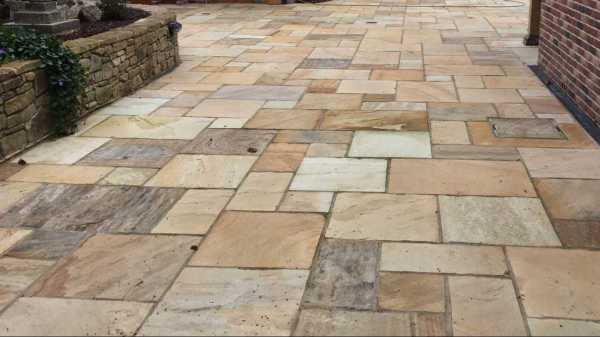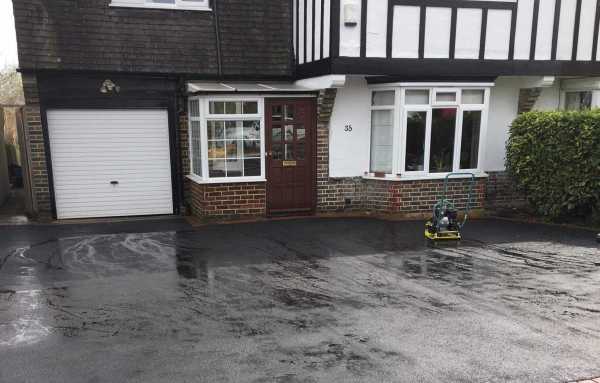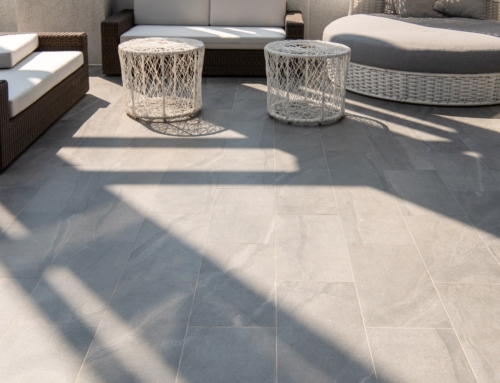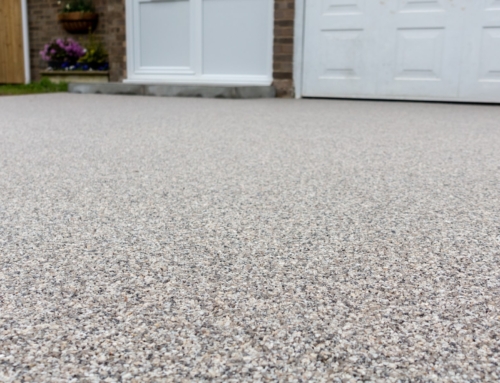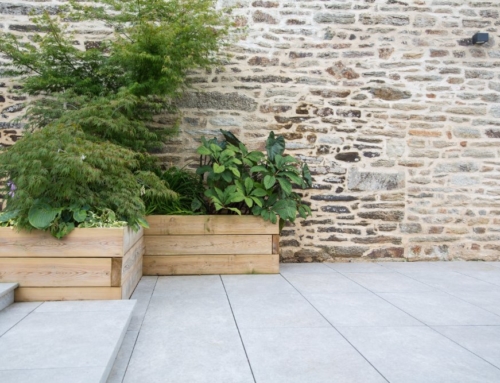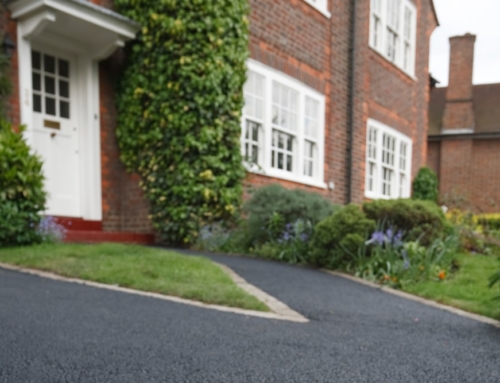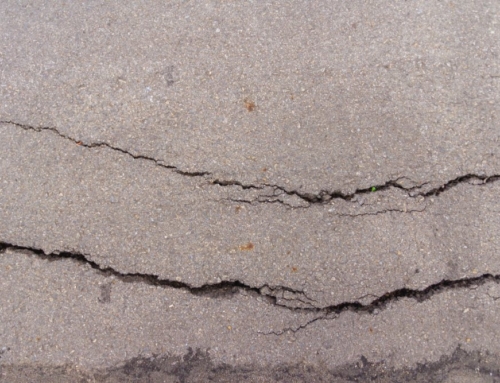Do You Need Planning Permission For A Driveway?
Planning permission can be a complex business and if you’re unsure whether your new driveway or front garden renovations require permission, know you aren’t the only one.
There are specific rules and restrictions in place related to laying a driveway and surfacing a front garden. In some situations, permission from planning authorities is required before carrying out these works on your home. The legislation is in place to ensure your property is protected from various risks, primarily flooding. In this article, we will consider circumstances which will affect the need for driveway planning permission.
Planning permission for paving a driveway or front garden
As of 2008, updated regulations mean that planning permission is now needed when carrying out works that involve paving over 5m² or more of ground at the front of your property with impermeable materials. What’s more, any embanking or terracing to support a driveway or other hard surface – such as a patio – will also require planning permission. This planning guidance must be followed in order to help keep your property and neighbours safe. Paved, impermeable surfaces can cause ineffective drainage and flooding during heavy rainfall. As a result, you are required to seek permission to pave areas at the front of a property to ensure you suitably minimise the risk of flooding.
If the work you are carrying out is merely a repair job or you are refurbishing an existing surfaced driveway, it is highly unlikely you will need planning permission. However, if you are at all unsure of whether permission for your project will be necessary, it is best to check with your local planning authority especially since rules can differ between council districts.
There are generally reduced restrictions when laying driveways at or near ground level, unless the work is being carried out on a listed building. Even when there are no planning authority requirements, property owners must ensure that any construction works do not significantly alter the aesthetics or diminish access to the listed home.
Drainage solutions
Materials which don’t naturally absorb rainfall will need to be paired with a good drainage system to make sure planning permission is granted. Without a good drainage system in place, water can end up pooling or being excessively diverted into drains which can lead to overburdening of the wastewater/drain network and flooding.
Suitable drainage techniques include:
- Rain garden: a dipped area of ground next to your driveway that water runoff will flow into and naturally drain away from. The area can be decorated with suitable plants or gravel which will help slow runoff during heavy rainfall and improve aesthetics.
- Soakaway: this works in a similar way to a rain garden, except dedicated pipework is installed to funnel water runoff to a suitable drainage area, e.g. a gravel trench or underground water store. Water will slowly soak into the ground from there.
- Wheel tracks: this driveway design keeps impermeable surfacing to a minimum by only paving two strips of ground for your vehicle’s wheels. With permeable, drainage-friendly ground in between and either side of the tracks, drainage isn’t as limited as with a typical paved driveway.
Driveways and gardens that are on a gradient will need extra consideration when it comes to drainage. In these circumstances, water can end up pooling at the bottom of the slope even with a drainage system in place. Diverting runoff water to a soakaway should be considered as an option, but creating a drainage channel to a suitable drain may be your only solution. Consult with a surfacing expert and local planning authority to establish what method will be most appropriate for your property.
Materials
Many traditional materials used for creating a driveway are impermeable. These materials do not let water through their surface and, as a result, water flows off them or collects in puddles rather than soaking into the ground naturally. Examples of impermeable materials include:
- Concrete
- Asphalt
- Tarmac
- Clay
There are several options of permeable material available which can be used successfully for paving your driveway or front garden. These materials are not watertight and, therefore, have the benefit of letting water seep through and drain away. This means that if you construct a new or replacement driveway out of these materials, you will not need to seek planning permission. Such materials are still strong and durable enough to be viably used for driveways. Examples of permeable materials include:
- Loose gravel
- Reinforced grass or gravel
- Porous asphalt or concrete
- Permeable block paving
- Permeable resin bound surfacing
A surfacing expert can help you determine what surfacing is best for your property layout, preferences and budget.
Hire a professional surfacing company
For expert advice and experience, hire a reputable surfacing company – such as the professionals here at UK Surfacings Ltd – to ensure any work carried out on your property meets all legal requirements. We can help make sense of planning guidance and legal regulations, as well as help you seek any necessary planning permission. One of our experts will work closely with you to identify reasonable and affordable solutions for your home. They will also ensure all work carried out is completed with high quality materials to guarantee a finished which is both aesthetically pleasing and highly durable.
For more information on paving planning permissions across South London, or to discuss your surfacings needs with one of our professionals, contact the team at UK Surfacings Ltd today.

